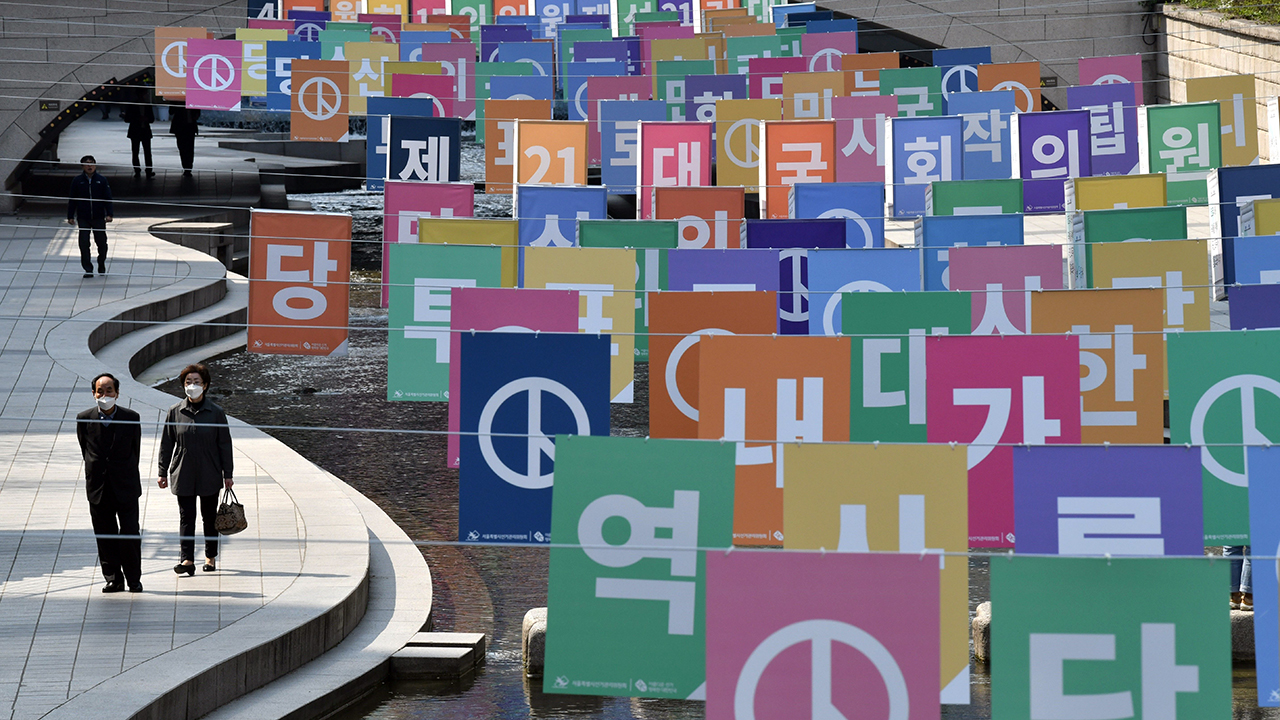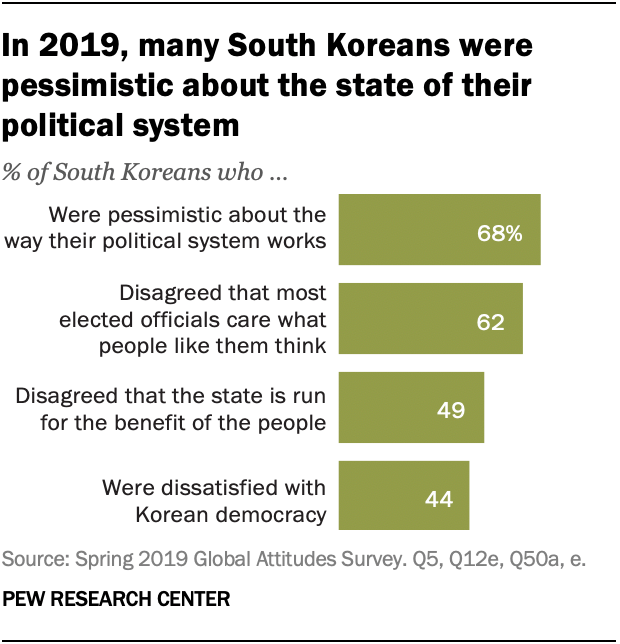

South Koreans are headed to the polls April 15 as the COVID-19 pandemic continues. While South Korea has been affected by the outbreak, it has flattened the curve of new infections and is proceeding with the election with certain protective measures in place. A total of 300 seats in the country’s legislative body, the National Assembly, are at stake.
It’s unclear how the country’s handling of the coronavirus may influence the election results. But a Pew Research Center survey conducted in spring 2019 examined South Koreans’ attitudes toward their democracy more broadly.
- Although dissatisfaction with democracy rose between 2018 and 2019 in South Korea, 55% of South Koreans said they were satisfied with the state of their democracy as of last spring, while 44% were dissatisfied. At the time, Koreans ages 18 to 29 were 35 percentage points more satisfied with their democracy than those 50 and older (70% vs. 45%).
- The South Korean public was pessimistic in several regards. Roughly six-in-ten (62%) disagreed with the statement “most elected officials care what people like me think,” and about half (49%) disagreed with the statement “the state is run for the benefit of all the people.”
- About seven-in-ten South Koreans (68%) said they were pessimistic about the way the political system works. There were ideological divides in these views: Those on the right were 33 percentage points less optimistic about the way the political system works than those on the left (15% vs. 48%).
- About eight-in-ten South Koreans (81%) said voting gives them some say about how the government runs things. Six-in-ten said it is very important that honest elections are held regularly with a choice of at least two political parties.
- Half or more South Koreans said it is very important to have democratic rights and institutions such as a fair judiciary, gender equality, regular elections, free speech, free internet and free opposition parties. However, South Koreans were less likely to see these democratic rights as very important than the median share of adults who said this across all 34 countries surveyed.
- South Koreans were generally optimistic about the country’s culture: Three-quarters express positive sentiments. Those on the right were 20 points less likely to express optimism than those on the left (65% vs. 85%).
Note: Here are the questions used for this report, along with responses, and its methodology.